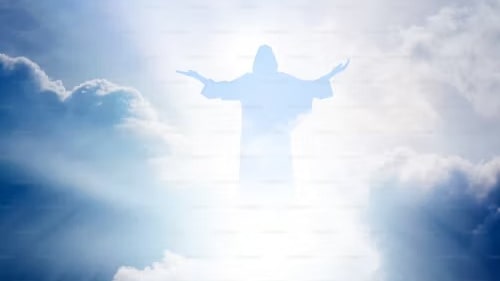One of the most misconstrued words in the theological and philosophical world today is “conceptualization.” As the old adage goes, “When the purpose of a thing is not known, abuse is inevitable.” This principle is especially true when it comes to our understanding of end-time events, particularly the rapture.
Have you ever asked yourself: Why do we need to be raptured? What does it mean? Is there such thing as rapture? Is it even necessary? The answer lies deeply rooted in the doctrine of resurrection. Yes — the rapture is not a separate event from resurrection, but a form of it.
Understanding Resurrection
The word resurrection stems from the Latin word resurrectio, meaning “a rising again.” In Christian theology, it refers to the act of coming back to life from the dead. But more than just physical, resurrection has a spiritual and eschatological (end-time) significance. Just as the bible described in 1 Thessalonians 4:16-17, in the scene of the rapture, there shall be a rising again.
In Romans 6:8 (KJV), the Apostle Paul states:
“Now if we be dead with Christ, we believe that we shall also live with him.”
This verse reveals a powerful spiritual principle: that death with Christ implies a promised resurrection life with Him — not just spiritually now, but physically and eternally in the age to come.
When Adam sinned, spiritual death entered the human race — “for in the day that thou eatest thereof thou shalt surely die” (Genesis 2:17). However, through Christ’s resurrection, the process of eternal life and bodily resurrection began — first in Him, and then in all who belong to Him.
Baptism: Symbol of Death and Resurrection
The Greek word for baptism, baptizō, means “to immerse,” and it symbolizes a spiritual death, burial, and resurrection. Paul explains in Romans 6:3-5 (KJV):
“Know ye not, that so many of us as were baptized into Jesus Christ were baptized into his death?
Therefore we are buried with him by baptism into death: that like as Christ was raised up from the dead… even so we also should walk in newness of life.
For if we have been planted together in the likeness of his death, we shall be also in the likeness of his resurrection.”
So resurrection is not just an event — it’s a process. It begins when we are born again, and it culminates on the last day at the return of Christ — the day of rapture.
Christ: The Firstfruit of the Resurrection
The resurrection of Jesus on Easter Sunday was not an isolated event. It was the firstfruits of a much greater harvest. Paul writes:
“But now is Christ risen from the dead, and become the firstfruits of them that slept.”
— 1 Corinthians 15:20 (KJV)
This makes Christ the head of the resurrection. Just as the head has already risen on Easter, the body (the Church) will follow on Rapture. Jesus Himself affirmed this in John 11:25 (KJV):
“I am the resurrection, and the life: he that believeth in me, though he were dead, yet shall he live.”
Rapture: The Resurrection of the Church
The term rapture is derived from the Latin rapio, meaning “to snatch away,” and it is best described in 1 Thessalonians 4:16-17 (KJV):
“For the Lord himself shall descend from heaven with a shout… and the dead in Christ shall rise first:
Then we which are alive and remain shall be caught up together with them in the clouds, to meet the Lord in the air: and so shall we ever be with the Lord.”
There are two key components here:
- The dead in Christ shall rise first — this is the first resurrection.
- Then the living shall be caught up — this is a spiritual transformation, a resurrection of those still alive (1 Corinthians 15:51-52).
Paul confirms this in Philippians 3:20-21 (KJV):
“…we look for the Saviour, the Lord Jesus Christ:
Who shall change our vile body, that it may be fashioned like unto his glorious body…”
Hence, both the dead and the living undergo resurrection, either from the grave or from mortality.
The phrase “the dead in Christ shall rise first” implies there is an immediate follow up event (the resurrection (transformation) of those that are alive from their mortal bodies). Revelation sheds light on this:
“Blessed and holy is he that hath part in the first resurrection: on such the second death hath no power…”
— Revelation 20:6 (KJV)
This “first resurrection” includes:
- Christ (already risen at Easter)
- The Church (at the rapture)
The second resurrection, however, occurs after the millennium and is for unbelievers, leading to judgment (Revelation 20:11-15).
Conclusion: The Rapture is a Resurrection Event
If death means separation (the day you eat of this fruit you shall surely die, and Adam became separated from fellowship with God), then uniting means coming/resurrection to live. The rapture is not just an escape plan — it is the completion of the resurrection process. We’ve died with Christ spiritually, we rise daily in newness of life, and on the last day, we shall be transformed (united) to be with Him forever.
As Paul writes in 1 Corinthians 15:52 (KJV):
“In a moment, in the twinkling of an eye, at the last trump… the dead shall be raised incorruptible, and we shall be changed.”
So when we speak of the rapture, we speak of resurrection — the final rising of the saints, both dead and alive, into eternal glory.




